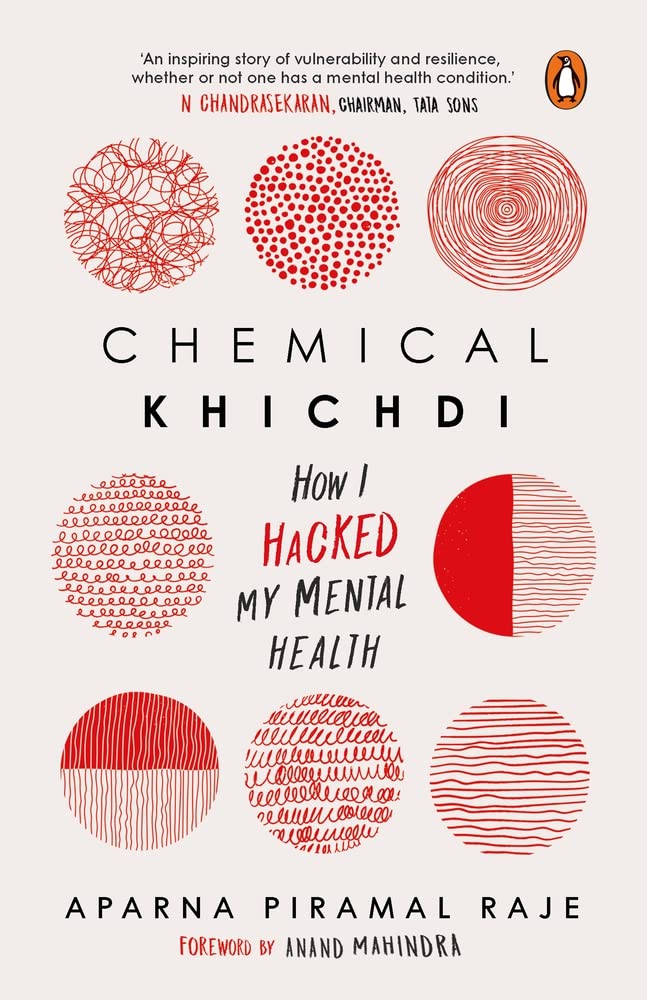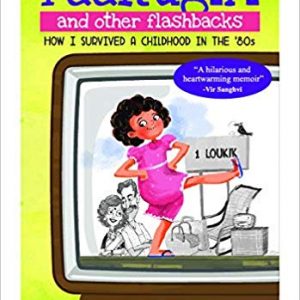Recent times have been laden with awareness of the importance of mental health. As we emerge from the pandemic, one of the collective lessons of society has to do with the acknowledgment that mental health is as important as physical health and that the two go together. Leading this change are individuals and groups of mental health practitioners who demystify the workings of the human mind and encourage conversations around the same. It is against this backdrop that this memoir emerges. Chemical Khichdi- How I hacked my Mental Health by Aparna Piramal Raje (Penguin, 2022) talks about the author’s lived experience with the bipolar condition.
But first, what is bipolarity? It is a condition, also known as manic depression, in which the person experiences extreme shifts in mood and energy levels, due to certain triggers that cause chemical reactions in the brain. These intense emotional states are called mood episodes and they last in distinct periods of days to weeks. On one end of the spectrum there is the manic or hypo manic condition where the person is in an abnormally happy or irritable mood. At the other end, is the depressive condition where the person is in a predominantly sad mood. A host of therapies, including psychotherapy and medication have been used to manage symptoms of bipolar.

Knowing the definition and description of the bipolar condition is one thing. Reading about what actually goes on in the mind of the person experiencing it, is quite another. How is the lived experience of this condition? What thoughts go on in the persons mind as they experience a mood episode? What is running through them as a manic episode takes over for instance? The description of a manic episode in the first chapter, when the author was at a yoga retreat, sets the tone for the bare honesty and authenticity that one will see in the forthcoming chapters.
Aparna weaves in the story of her life with the story of living with bipolar condition. Through her point of view, the reader can understand not only what bipolarity entails but also honest perspectives on how one can symptoms. She talks about a myriad of therapies that helped her and provides a host of practical information and resources that make this book a self-help guide as well. There is a section towards the end of the book that summarizes these ‘takeaways’ quite well.
One of the most poignant themes in the book is how the people around you, that is, family and friends, can really provide a robust ecosystem for a person struggling to cope with a mental health condition. While her family and friends have been a rock-solid support through the thick and thin, she acknowledges how hard it can be for those who occupy the caregiver positions. The book has perspectives that will also give caregivers a platform to understand the intricacies of managing mental health conditions, and also realize just how crucial their role is. One finds quotes and honest narratives from her family and circle of friends, which again provides a different window to look at the management of her condition.
The role of mental health awareness at the workplace is also crucial, and as the book tells us, a supportive workplace can make all the difference. One can read her account of how the diagnosis and the actual experience of the bipolar condition influenced work choices. While she resigned from her family-run venture due to her health conditions at the time, she discovered a new calling and made significant inroads in her professional development. As she presents her choices and lays bare the thought processes that went into them, the reader can appreciate the fact that a mental health diagnosis need not signal the end of a professional career. In fact, it could be a springboard to uncover new paths as well.
This book is informative and resource heavy for those who seek information on bipolar condition. But I believe it goes much beyond that. I think it shows how a person can cope with a mental health condition and still be a mother, wife and working professional in her own right. She can still make time for her hobbies and her friends. She can still march ahead on the path of her dreams, carving out life as she wants to. In that sense I do feel that the book gives hope to other facing similar conditions. A mental health diagnosis need not be mentally crippling! With the right kind of support and initiative, one can live a happy and successful life.
And hence I would urge readers to explore this memoir. For those with any mental health condition, not just the bipolar condition, it is a book filled with empathy since the writer understands the unique challenges of living with this diagnosis. For caregivers, family and friends, this may open a new perspective to understand things from the point of view of the person living with a mental health condition, specifically bipolar condition. For professionals, the account of the lived experience holds a different kind of insight. And for general readers, the book can enhance their knowledge about the arena of mental health and how crucial it is to embrace a holistic perspective.
Chemical Khichdi- How I hacked my Mental Health by Aparna Piramal Raje is direct, honest and authentic, written in simple straightforward language, with a very conversational tone. With humour and honesty, Aparna lays bare her lived experience of the bipolar condition.




